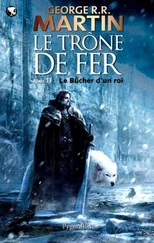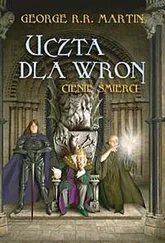George Martin - Windhaven
Здесь есть возможность читать онлайн «George Martin - Windhaven» весь текст электронной книги совершенно бесплатно (целиком полную версию без сокращений). В некоторых случаях можно слушать аудио, скачать через торрент в формате fb2 и присутствует краткое содержание. Жанр: Социально-психологическая фантастика, на английском языке. Описание произведения, (предисловие) а так же отзывы посетителей доступны на портале библиотеки ЛибКат.
- Название:Windhaven
- Автор:
- Жанр:
- Год:неизвестен
- ISBN:нет данных
- Рейтинг книги:3 / 5. Голосов: 1
-
Избранное:Добавить в избранное
- Отзывы:
-
Ваша оценка:
- 60
- 1
- 2
- 3
- 4
- 5
Windhaven: краткое содержание, описание и аннотация
Предлагаем к чтению аннотацию, описание, краткое содержание или предисловие (зависит от того, что написал сам автор книги «Windhaven»). Если вы не нашли необходимую информацию о книге — напишите в комментариях, мы постараемся отыскать её.
Windhaven — читать онлайн бесплатно полную книгу (весь текст) целиком
Ниже представлен текст книги, разбитый по страницам. Система сохранения места последней прочитанной страницы, позволяет с удобством читать онлайн бесплатно книгу «Windhaven», без необходимости каждый раз заново искать на чём Вы остановились. Поставьте закладку, и сможете в любой момент перейти на страницу, на которой закончили чтение.
Интервал:
Закладка:
The day came, as Maris knew it must.
It was a small party, though the Landsman himself was the host. He was a portly, genial man, with a kind face hidden by a full beard that he hoped would make him fierce. When he met them at the door, his clothes dripped wealth: rich embroidered fabrics, rings of copper and brass, and a heavy necklace of real wrought iron. But the welcome was warm.
Inside the lodge was a great party room. Bare wooden beams above, torches flaming bright along the walls, a scarlet carpet underneath. And a table, groaning under its burden—kivas from the Shotans and Amberly’s own wines, cheeses flown in from Culhall, fruit from the Outer Islands, great bowls of green salad. In the hearth, a seacat turned on a spit while a cook basted it with bitter-weed and its own drippings. It was a big one, half again the size of a man, its warm blue-gray fur skinned away to leave a barrel-shaped carcass tapering to a pair of powerful flippers. The thick layer of fat that protected the seacat against the cold had begun to crackle and hiss in the flames, and the curiously feline face had been stuffed full of nuts and herbs. It smelled wonderful.
Their land-bound friends were all at the party, and they clustered around Coll, offering congratulations. Some of them even felt compelled to talk to Maris, to tell her how lucky she was to have a flyer for a brother, to have been a flyer herself. Have been, have been, have been . She wanted to scream.
But the flyers were worse. They were there in force, of course. Corm, handsome as ever, dripping charm, held court in one corner, telling stories of far-off places to starry-eyed land-bound girls. Shalli was dancing; before the evening had run its course she would burn out a half-dozen men with her frantic energy. Other flyers had come from other islands. Anni of Culhall, the boy Jamis the Younger, Helmer of Greater Amberly, whose own daughter would claim his wings in less than a year, a half-dozen others from the West, three cliquish Easterners. Her friends, her brothers, her comrades in the Eyrie.
But now they avoided her. Anni smiled politely and looked the other way. Jamis delivered his father’s greetings, then lapsed into an uncomfortable silence, shifting from foot to foot until Maris let him go. His sigh of relief was almost audible. Even Corm, who said he was never nervous, seemed ill at ease with her. He brought her a cup of hot kivas, then saw a friend across the room that he simply had to talk to.
Feeling cut off and shunned, Maris found a leather chair by the window. There she sat and sipped her kivas and listened to the rising wind pull at the shutters. She didn’t blame them. How can you talk to a wingless flyer?
She was glad that Garth and Dorrel had not come, nor any of the others she had come to love especially. And she was ashamed of being glad.
Then there was a stir by the door, and her mood lifted slightly. Barrion had arrived, with guitar in hand.
Maris smiled to see him enter. Although Russ thought him a bad influence on Coll, she liked Barrion. The singer was a tall, weather-beaten man, whose shock of unruly gray hair made him look older than he was. His long face bore the marks of wind and sun, but there were laugh lines around his mouth as well, and a roguish humor in his gray eyes. Barrion had a rumbly deep voice, an irreverent manner, and a penchant for wild stories. He was Western’s best singer, so it was said. At least Coll said it, and Barrion himself, of course. But Barrion also said he’d been to a hundred islands, unthinkable for a wingless man. And he claimed that his guitar had arrived seven centuries ago from Earth, with the star sailors themselves. His family had handed it down, he said, all serious, as if he expected Coll and Maris to believe him. But the idea was nonsense—treating a guitar as if it were a pair of wings!
Still, liar or no, lanky Barrion was entertaining enough, and romantic enough, and he sang like the very wind. Coll had studied under him, and now they were great friends.
The Landsman clapped him roundly on the back, and Barrion laughed, sat down, and prepared to sing. The room grew quiet; even Corm stopped in mid-story.
He began with the Song of the Star Sailors.
It was the oldest ballad, the first of those that they could rightly call their own. Barrion sang it simply, with easy loving familiarity, and Maris softened to the sound of his deep voice. How often she had heard Coll, late at night, plucking at his own instrument and singing the same song. His voice had been changing then; it made him furious. Every third stanza would be interrupted by a hideous cracked note and a minute of swearing. Maris used to lie in bed and giggle helplessly at the noises from down the hall.
Now she listened to the words, as Barrion sang sweetly of the star sailors and their great ship, with its silver sails that stretched a hundred miles to catch the wild starwinds. The whole story was there. The mysterious storm, the crippled ship, the coffins where they died awhile; then, driven off course, they came here , to a world of endless ocean and raging storms, a world where the only land was a thousand scattered rocky islands, and the winds blew constantly. The song told of the landing, in a ship not meant to land, of the death of thousands in their coffins, and the way the sail—barely heavier than air—had floated atop the sea, turning the waters silver all around the Shotans. Barrion sang of the star sailors’ magic, and their dream of repairing the ship, and the slow agonizing dying of that dream. He lingered, melancholy, over the fading powers of their magic machines, the fading that ended in darkness. Finally came the battle, just off Big Shotan, when the Old Captain and his loyalists went down defending the precious metal sails against their children. Then, with the last magic, the sons and daughters of the star sailors, the first children of Windhaven, cut the sails into pieces, light, flexible, immensely strong. And, with whatever metal they could salvage from the ship, they forged the wings.
For the scattered people of Windhaven needed communication. Without fuel, without metal, faced by oceans full of storms and predators, given nothing free but the powerful winds: the choice was easy.
The last chords faded from the air. The poor sailors, Maris thought, as always. The Old Captain and his crew, they were flyers too, though their wings were star-wings. But their way of flying had to die so a new way could be born.
Barrion grinned at someone’s request, and began a new tune. He did a half-dozen songs from ancient Earth, then looked around sheepishly and offered up a composition of his own, a bawdy drinking song about a horny scylla who mistook a fishing ship for its mate. Maris hardly listened. Her mind was on the star sailors still. In a way, they were like Woodwings, she thought; they couldn’t give up their dream. And it meant they had to die. I wonder if they thought it was worth it?
“Barrion,” Russ called from the floor. “This is a flyer’s age-day. Give us some flying songs!”
The singer grinned, and nodded. Maris looked over at Russ. He stood by the table, a wine glass in his good hand, a smile on his face. He is proud, she thought. His son is soon to be a flyer, and he has forgotten me. She felt sick and beaten.
Barrion sang flying songs; ballads from the Outer Islands, from the Shotans, from Culhall and the Amberlys and Poweet. He sang of the ghost flyers, lost forever over the seas when they obeyed the Landsman-Captain and took swords into the sky. In still air you can see them yet, wandering hopelessly through the storms on phantom wings. Or so the legends go. But flyers who hit still air seldom return to talk of it, so no one could say for sure.
He did the song of white-haired Royn, who was past eighty when he found his flyer grandson dead in a lover’s quarrel, and took the wings to chase and kill the culprit.
Читать дальшеИнтервал:
Закладка:
Похожие книги на «Windhaven»
Представляем Вашему вниманию похожие книги на «Windhaven» списком для выбора. Мы отобрали схожую по названию и смыслу литературу в надежде предоставить читателям больше вариантов отыскать новые, интересные, ещё непрочитанные произведения.
Обсуждение, отзывы о книге «Windhaven» и просто собственные мнения читателей. Оставьте ваши комментарии, напишите, что Вы думаете о произведении, его смысле или главных героях. Укажите что конкретно понравилось, а что нет, и почему Вы так считаете.












